How “most wanted” lists impact public safety and the right to a fair trial

The Texas Department of Public Safety (DPS) maintains a list of the state’s 10 most wanted fugitives to assist in the apprehension of high-profile criminals who they believe pose a significant threat to public safety. This list is part of a larger effort by the department to leverage community involvement and media outreach to help locate and arrest potentially dangerous individuals.
By publicizing the profiles of these fugitives, including their criminal histories, affiliations and last-known locations, the Texas DPS aims to generate tips and leads that could result in successful arrests.
Texas’s 10 most wanted fugitives
1. Antonio Martinez Gonzalez
Reward being offered: Up to $7,500
Antonio Gonzalez, who has affiliations with the West Texas Tango gang, is connected to Midland, Texas, as well as Mexico. Beginning in the early 2000s, his criminal record includes convictions for crimes like burglary, retaliation, and unauthorized vehicle use. Later, he was convicted of harming a child in 2006, assaulting a public servant in 2009, a DWI offense in 2015, and illegal substance possession in 2017.
After his parole release in June 2019, he found himself back in custody in February 2021 for assault on a family member. After posting bond, warrants were subsequently issued for violating his parole and another assault offense.
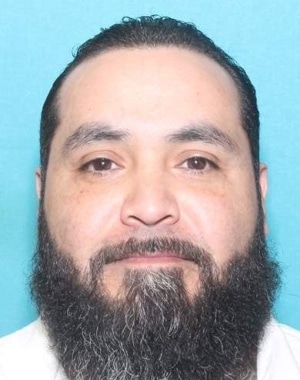
2. Steven Clay Leifeste
Reward being offered: Up to $6,000
Convicted in 2012 for aggravated assault and failure to stop and render aid, Steven Leifeste served 4 years in TDCJ prison before being released in 2014. In February 2021, he was convicted of unauthorized use of a vehicle and sentenced to 3 years of probation. Since March 2021, multiple arrest warrants have been issued for him, including for evading arrest and probation violations.
Most recently, in March 2022, Henderson County issued a warrant for his arrest for 2 counts of sexual assault of a child.
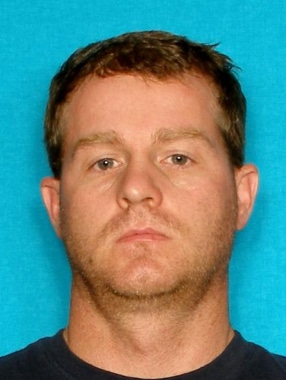
3. Zaed Fawaz Rashid
Reward being offered: Up to $5,000
Zaed Rashid is linked to both Denton County in Texas and the state of Virginia. He was arrested in Trophy Club, Texas, during the spring of 2022 for various offenses, including aggravated assault, causing bodily injury, burglary, and breaking bond or protective orders.
After securing his release through bond, new arrest warrants were issued for him by the Denton County Sheriff’s Office on November 1, 2022. These new charges involve aggravated assault resulting in serious bodily injury, continuous violence against the family, burglary with the intent to carry out another felony, and further violation of bond or protective orders.
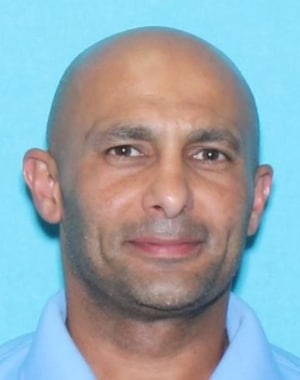
4. Brandon Wayne Hogan
Reward being offered: Up to $5,000
Brandon Hogan has connections to Coryell County, including the cities of McGregor and Gatesville. Initially convicted of assault causing bodily injury in 2007, he was given 5 years of probation, which was revoked a year later, leading to a 5-year prison sentence.
In August 2022, Hogan faced new charges, including theft of a firearm, home burglary, assault and criminal mischief. On September 26, 2022, he managed to escape from his work assignment at Seaton Cemetery in Coryell County.
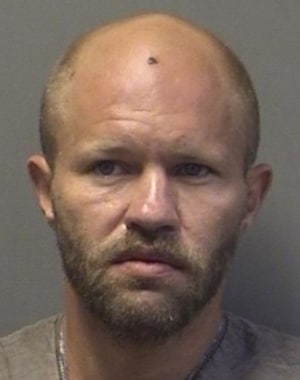
5. Chad Everett King
Reward being offered: Up to $5,000
Chad Everett King, with connections to El Paso, was convicted in November 2018 for aggravated assault and illegal firearm possession. He served 2 concurrent 3-year sentences and was released in March 2021. King also has a record of multiple robbery arrests in Missouri.
In December 2022, new warrants were issued for his arrest in El Paso County, including charges of aggravated kidnapping with a weapon, kidnapping involving sexual abuse, and 6 counts of aggravated sexual assault.

Arrest Record vs Police Records, vs Criminal Records, vs Convictions
If you’re arrested, charged with a crime or convicted of a crime in Texas, information about the incident becomes part of your criminal record. Learn how the information is stored and what’s available for the public to view.
6. Joshua Darnell Lockett
Reward being offered: Up to $5,000
Joshua Darnell Lockett, a high-priority fugitive in Texas affiliated with the Bloods gang, has connections to Collin County, including McKinney. Convicted in October 2019 for deadly conduct involving a firearm, evading arrest and assault, he served varying sentences and was released from prison in 2021. He was arrested again in April 2023 for illegally possessing a firearm but was released on bond.
As of July 2023, multiple warrants have been issued for his arrest, including for murder and aggravated assault, as well as illegal firearm possession and drug-related charges, by authorities in McKinney and Collin County.

7. Arthur Dewayne Carson
Reward being offered: Up to $5,000
Arthur Dewayne Carson has connections to various Texas cities, including Austin, Mexia, Lubbock and Fort Worth. He was first convicted of robbery resulting in bodily injury in 1991, for which he received a 12-year prison sentence. He was paroled but convicted again for the same offense in 1994, receiving a 40-year sentence.
After being paroled again in 2012, warrants for his arrest were issued in 2013 for parole violations and in 2014 for aggravated robbery. Carson was last believed to be in Austin, Texas, and is thought to be homeless.
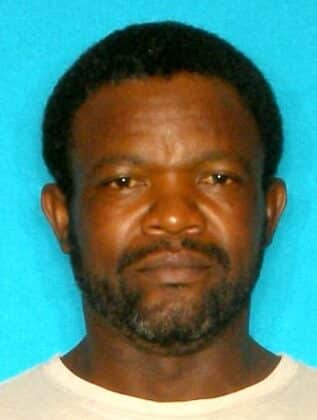
8. Jaime Rubalcada
Reward being offered: Up to $5,000
Jaime Rubalcada, associated with the Texas Syndicate gang, has connections to several places, including the Rio Grande Valley, Brazoria County, and the State of Illinois. In 2003, he was convicted of aggravated kidnapping and assault, serving concurrent sentences of 10 and 5 years.
Various warrants have been issued for his arrest since 2020, including for assaulting a family member, possession of a controlled substance, and multiple counts of assault and unlawful restraint. Multiple counties in Texas have outstanding warrants for his arrest for crimes ranging from aggravated assault to criminal mischief.

9. Kenneth Wayne Dove, Jr.
Reward being offered: Up to $5,000
Kenneth Wayne Dove, Jr., a convicted sex offender with connections to El Paso County, Texas, is required to register every 3 months. He has a criminal history that includes convictions for marijuana delivery in 2009 and 2 counts of indecency with a child in 2016. He served concurrent sentences for these offenses and was released in January 2020.
Recently, warrants have been issued for his arrest for failing to register as a sex offender and for evading arrest. Multiple warrants were issued in El Paso County in early 2023 for similar offenses.
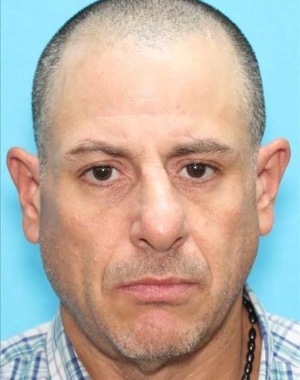
10. Clayton Allen Starr
Reward being offered: Up to $5,000
Clayton Allen Starr, a convicted sex offender with connections to Tarrant County, Texas, has past affiliations with the Aryan Circle gang. His criminal history dates back to 1990, with convictions for various offenses, including aggravated assault of a peace officer and burglary. He also has a 1991 conviction for sexually assaulting a 13-year-old. Starr was last released from prison in 2017 after serving time for fraud and false statements.
Multiple warrants were issued for his arrest in Tarrant County in 2023, including for assault on a pregnant woman, assault on a child/elder/disabled person, and failure to register as a sex offender.

When to Turn Yourself in for a Warrant
Facing an arrest warrant? Understand your rights and when to contact an attorney before turning yourself in.
How are fugitives chosen for “most wanted” lists?
The selection of individuals for a “10 Most Wanted” list is a complex process that typically involves multiple law enforcement agencies and experts. While the specific criteria can vary depending on the jurisdiction or agency managing the list, there are several general factors that are commonly considered:
- Nature and severity of crimes committed. Those who have committed heinous or violent crimes are more likely to be prioritized.
- Risk to public safety. Individuals who pose an ongoing or significant threat to the community may be moved up on the list.
- Legal standing. People who have been convicted of crimes and have escaped or who have active arrest warrants are usually given priority.
- Criminal history. Those with a history of repeated offenses or escalating criminal activities may be given special attention.
- Notoriety or profile. High-profile cases that have garnered media attention could make the list, especially if public vigilance could aid in capture.
- Quality of information. Availability of information that can be shared with the public, such as photographs, biographical data and known locations, may also be a factor.
- Investigative needs. Being on the list can sometimes facilitate ongoing investigations, either by motivating the public to provide tips or by putting additional pressure on the wanted individual.
- Jurisdictional considerations. In some cases, individuals may be added to the list because they are suspected to have crossed state lines, making them a federal concern, or due to requests from other jurisdictions.
The overall aim is to identify and apprehend the individuals who potentially pose the greatest risk to public safety.
How “most wanted” lists and mugshots impact public perception and fair trials
The concept of “most wanted” lists and the release of mugshots are enduring features of modern law enforcement strategies aimed at accelerating the apprehension of suspects and those with outstanding warrants.
While these tools play a critical role in public safety efforts, they also raise nuanced ethical and legal questions, particularly concerning the accused’s right to a fair trial.
The dissemination of such information can shape public perception in ways that may not be immediately evident, potentially affecting various facets of the justice system and the accused individual’s life. Here are some examples:
- Prejudicial impact on public perception. Being listed as a “most wanted” fugitive or having a mugshot released can instantly label an individual as guilty in the eyes of the public. This perception often persists even if the accused is later exonerated.
- Media amplification. The notoriety that comes with these lists and mugshots often attracts significant media attention. This increased exposure can exacerbate public pressure for a swift conviction, thereby putting added strain on law enforcement and the courts.
- Social media’s role. In today’s digital age, mugshots and “most wanted” lists can go viral in minutes. The rapid spread complicates the task of assembling an impartial jury and further skews public opinion.
- Challenges for the defense. Lawyers may find it more difficult to counter the negative public perceptions shaped by these lists and mugshots. They often need to invest additional resources to ensure their clients receive a fair trial.
- Long-term social stigma. The social ramifications of being featured on these lists or having a mugshot released are often long-lasting. This can affect future employment, housing opportunities, and social relationships.
- Comparative severity of offenses. Individuals might be listed alongside others wanted for far more heinous crimes, which can create an unbalanced view of the severity of their alleged offenses.
- Civil liberties concerns. Critics argue that “most wanted” lists and mugshots can infringe on an individual’s rights, including the right to privacy and due process.
In sum, while the utility of “most wanted” lists and mugshots in facilitating law enforcement objectives is well acknowledged, it’s imperative to consider the ethical and legal implications of these tools. They create a delicate balance between the need for public safety and an individual’s civil liberties, particularly the right to a fair trial.
False Memories & Their Impact on Criminal Defense
Learn the truth about false memory convictions so you can better protect your rights.
How can a criminal defense attorney push back against negative public perceptions to ensure a fair trial?
In high-profile or controversial cases where the defendant faces significant negative public perception, a skilled criminal defense attorney can employ a range of strategies to ensure a fair trial. The goal is to counteract any pretrial publicity or bias that might interfere with the jury’s impartiality and to protect the defendant’s constitutional rights.
One of the first opportunities to gauge public perception and its potential impact is during jury selection. Attorneys can ask prospective jurors about their exposure to media coverage and whether they hold preconceived notions about the case or the defendant. Jurors who admit to bias can be removed.
Other strategies they might employ include the following:
- Motion for change of venue. If the case has garnered significant local media attention, the defense may request a change of venue to a location where jurors are less likely to be influenced by negative publicity.
- Gag orders. Attorneys can request a gag order to prevent parties involved in the case, including law enforcement and potential witnesses, from speaking to the media, thereby controlling the flow of information.
- Pretrial motions. Filing motions to suppress evidence or dismiss charges can not only weaken the prosecution’s case but also counteract negative narratives surrounding the defendant.
- Expert witnesses testimony. Introducing expert testimony can serve to counterbalance any public perception that has been fueled by misinformation or misunderstanding of the facts.
- Client coaching. Preparing the defendant on how to present themselves in court, including dress and demeanor, can also influence the jury’s perception.
- Thorough cross-examination. A well-executed cross-examination can not only cast doubt on the prosecution’s case but can also counter any assumptions or stereotypes that jurors may hold against the defendant.
By employing a combination of these strategies, a criminal defense attorney can work to counteract negative public perception and strive for a fair and impartial trial for their client.
What should I do if I’ve been wrongly accused of a crime or labeled a fugitive in Texas?
If you’ve been wrongly accused of a crime or labeled as a fugitive in Texas, it’s imperative that you act promptly and follow certain steps to protect your interests. The very first step you should take is to consult with a knowledgeable criminal defense attorney. A legal expert can guide you through the criminal justice process and help safeguard your rights.
Your rights while in police custody
When interacting with law enforcement officers, remember that you have the right to remain silent. Anything you say can be used against you in a court of law. It’s generally advisable to consult your attorney before answering any questions.
Also, keep in mind that while you should not resist arrest, you can politely decline to answer questions or consent to searches without a warrant until you’ve spoken to an attorney. Cooperation with law enforcement is important, but so is the protection of your constitutional rights.
If you are arrested, your attorney can request bail on your behalf, which could allow you to be released from custody while your case is pending. Being out on bail can facilitate the process of preparing your defense.
Understanding Your Rights During Police Encounters in Texas
Learn what rights Texans have when stopped or questioned by law enforcement.
Your rights if you’re acquitted
If you’re found not guilty or the charges against you are dismissed, you could potentially have grounds for pursuing a civil lawsuit for wrongful arrest or false imprisonment. Filing such a lawsuit could provide an opportunity for financial compensation due to the damages and emotional distress that you experienced as a result of the unjust arrest.
Furthermore, once your case has been resolved favorably, you may have the option to expunge your criminal record. An expungement essentially erases the arrest and any related proceedings from public records, making it as if the event never occurred in the eyes of the law. This can be an essential step for moving forward and minimizing the long-term impact on your life.
Get help and advice from an experienced Houston criminal defense attorney
The criminal justice system is complicated, and the stakes are often high. The last thing you want to do if you’re accused of a crime in Texas is wait and leave it up to chance. Protect your rights today by eliciting the help of skilled criminal defense attorney Matt Sharp at The Law Office of Matthew D. Sharp.
From DWIs to sex crimes to fraud, Matt has experience in a wide range of criminal defense cases in Texas, and he can ensure you’re treated with fairness and dignity throughout the criminal justice process. Contact his office today to schedule a free consultation.
References
Fugitives. (n.d.). www.dps.texas.gov. Retrieved September 21, 2023, from https://www.dps.texas.gov/texas10mostwanted/mostwanted/fugitives
SexOffenders. (n.d.). www.dps.texas.gov. Retrieved September 21, 2023, from https://www.dps.texas.gov/texas10mostwanted/MostWanted/sexOffenders







